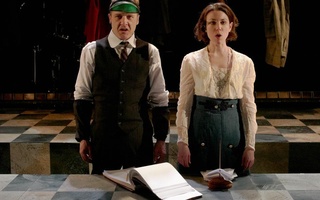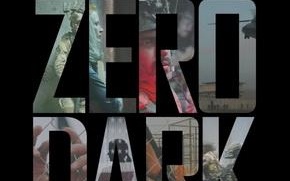“Everybody assumes that to be a scientist or a mathematician requires thinking and problem solving and so on. But a lot of people assume the arts are just a matter of inspiration, or God giving you a message, or primarily about emotions,” says Howard E. Gardner, a former co-director and one of twelve Principal Investigators of Project Zero, a research group at the Graduate School of Education.
Founded by philosopher Nelson Goodman in 1967, Project Zero claims its mission is “to understand and enhance learning, thinking, and creativity in the arts, as well as humanistic and scientific disciplines.” In the aftermath of the success of the Soviet Sputnik space program, Americans focused on determining ways in which people in the scientific disciplines learned. Project Zero was created in response to this move to emphasize scientific instruction, which its founders felt unfairly ignored learning through the arts. The group’s name refers to Goodman’s belief that nothing—or “zero”—had then been established about how learning happens in the arts. Goodman accepted an offer to run Project Zero with the idea that it would combat assumptions about artistic practice and ameliorate the lack of rigor in cognitive investigations of arts education.
Many of the major ideas which emerged from Project Zero in its first two decades of existence were a result of its focus on the arts, which in turn greatly influenced the field of arts education. One of these theories, developed during the mid-1980s, is that of “teaching for understanding.” This idea draws on an inherent characteristic of the arts, as it suggests that individuals demonstrate true understanding of a concept only when they are able to put it into action. “It borrows the idea of performance from the arts. It says, ‘It’s not what you know, but what you can do with what you know,’” says Shari Tishman, the current Director of Project Zero.
These concepts began Project Zero’s transformation from what had been a primarily theoretical enterprise into a more applied, hands-on organization. “I guess my sense is that Project Zero has always been interested in that line between—the bridge between—theory and practice,” says Principal Investigator Mara Krechevsky.
More recently, this emphasis on application has grown to encompass many of the toughest questions in education today, both arts-related and not. Much of their current research, such as teaching children to understand complex causality, can be applied across a number of subjects. Principal Investigator Tina A. Grotzer provides an example of the latter: “Kids come into the cafeteria, and they talk a little louder to be heard over the person next to them…and pretty soon the lunch lady’s yelling at them. They’re all upset because it’s not their fault…their intentions are just to be heard,” she says.
Grotzer explains that this situation provides an analogy for the current state of climate change, which has escalated to a dangerous degree because of the cumulative effects of heedless individual actions.
“It’s taking those understandings that kids have today and helping them live better in the world they’re going to live in tomorrow,” she says.
Though Project Zero has broadened its scope significantly in recent years, it has not lost sight of its roots in the arts and how arts-oriented programs can contribute to improving the future, specifically that of education.
“I’m personally very interested in looking at how art can help young people understand the power of thinking,” says Tishman, the Principal Investigator of Artful Thinking. Artful Thinking was developed to help teachers integrate art into the classroom, and to use analytical thinking about art to encourage similar ways of thinking in other subjects. The “Artful Thinking Palette,” which includes concepts such as “reasoning,” “comparing” and “finding complexity,” suggests a number of aspects of thinking which art may help cultivate.
According to Gardner, Project Zero is constantly looking ahead to the future of education. “We need to have entities that try to imagine what education could be like, instead of tinkering at the edges,” he says. The group’s progressive perspective has led it to identify globalization, the digital revolution, and the biological revolution (the rapidly changing understanding of how the brain functions), as three important points that will transform education for this generation of students.
“Clearly the digital revolution makes possible new media. In terms of Project Zero, one of the things we’ve learned from the digital revolution is that we can’t just think of canonical art forms—dance, theater; we have to think of other art forms that are arising because of digital possibilities,” Tishman says. “The digital revolution makes possible certain kinds of tools that provide opportunities to engage in the arts much more widely and in different ways.”
While the foundational focus on the arts has contributed to the formulation of its larger theories, ultimately the goal of Project Zero is to advance education as a whole.
“When you’re saying there is this whole bunch of things that people need to learn, and they need to learn them well, and all these diverse students need to be able to learn them well, it’s like trying to plant a field without having the seeds,” Grotzer says. “You have to know what to do to nourish them, to make them grow. Unless you know what to do on the ground, you aren’t going to change education.”
Read more in Arts
Gentlement BroncosRecommended Articles
-
Protecting American EducationIt’s not often that a six-year-old can claim to be a spokesperson for education reform, but spokesperson is exactly what ...
-
 ‘Machine’ Fails to Add Up to Success
‘Machine’ Fails to Add Up to Success -
‘I Will Give You Nothing for That’The small, symbolic act of refusing to bribe in the same manner as thousands of other people has emboldened many individuals in India and thus anti-corruption advocates throughout the developing world.
-
A Mosque by Any Other NameThe media have picked up on and exploited the fact that “mosque” draws our eyes more than anything else.
-
A StoryI was walking through City Hall Park the other day, just to stretch my legs.
-
 Fact, Fiction, and Freedom in 'Zero Dark Thirty'
Fact, Fiction, and Freedom in 'Zero Dark Thirty'













